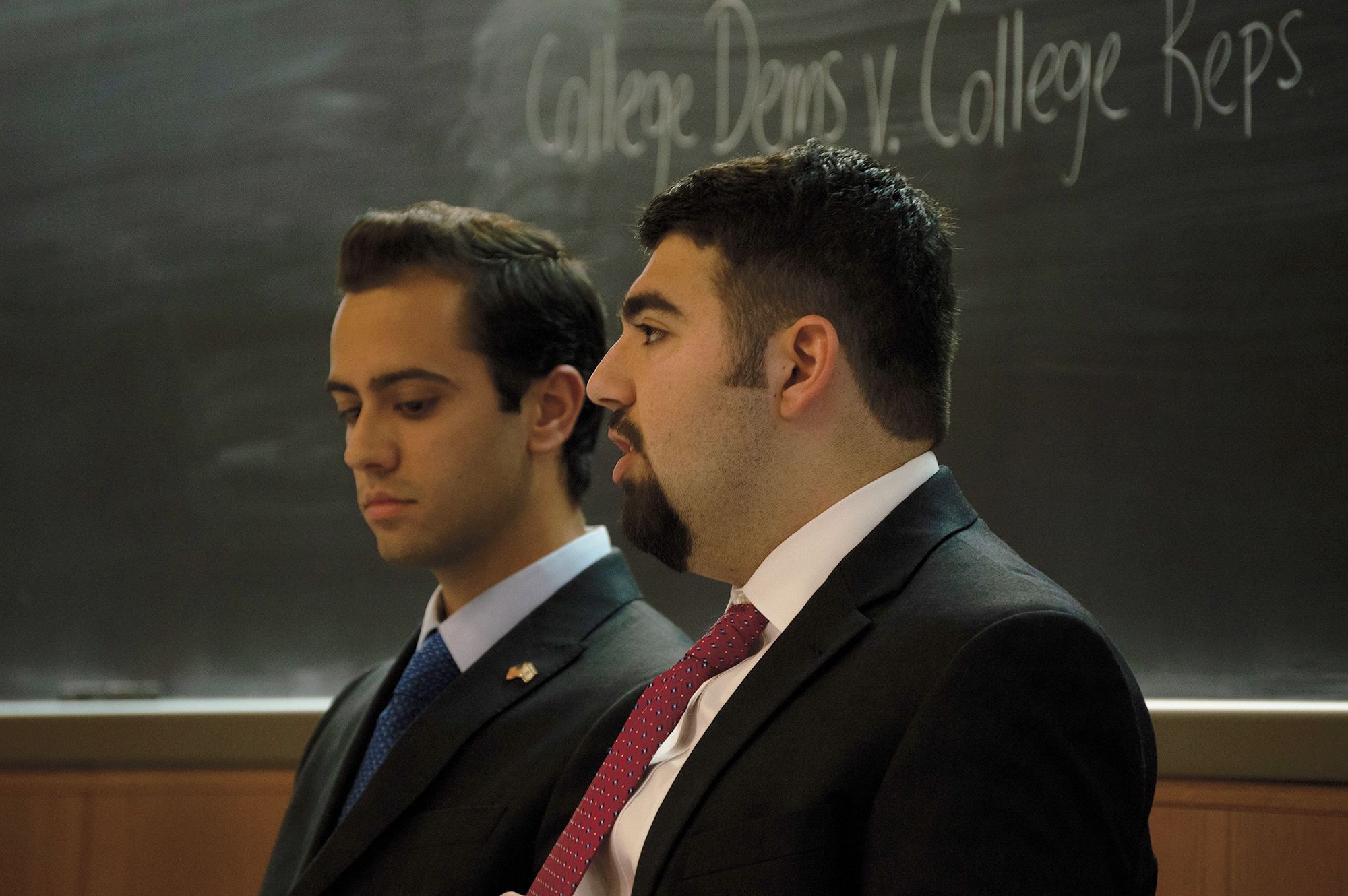More than 90 people gathered in the basement of Jiménez Hall Thursday night to watch the University of Maryland’s college Republicans and Democrats debate topics ranging from healthcare to criminal justice reform.
The event was hosted by Maryland Discourse, a non-partisan student group that aims to engage students in discussions of political and social issues, and co-hosted by Political Latinxs United for Movement and Action in Society.
Gideon Epstein, Maryland Discourse’s events director, said he thought the event was important because it’s a chance for students to familiarize themselves with the topics they will vote on in next month’s gubernatorial elections.
“It’s really important that students be educated about the issues that are on the ballot,” he said.
The debate focused on state — rather than national — issues. The questions were based on six predetermined topics: education, the environment, gerrymandering and redistricting, criminal justice, healthcare and transportation.
College Republicans President Ben Colebrook said that one of his goals was to point out the good that Gov. Larry Hogan has done during his four years in office.
“The Democrats like to paint him as like this evil person that doesn’t stand up to Trump,” said Colebrook, a junior computer science and math major. “They really just try to nationalize the debate…We really want to focus on on Maryland.”
[Read more: UMD grad student group backs Ben Jealous for his collective bargaining stance]
Speakers touched on the Maryland Healthy Working Families Act, a law that took effect in February of this year after Hogan tried to veto it. It requires paid sick leave for employees who meet certain criteria, such as being over 18 and working more than 12 hours a week.
“[Hogan] doesn’t think Maryland workers deserve paid sick leave,” said College Democrats spokesperson Will O’Malley. “He doesn’t think that you deserve paid sick leave. It’s ridiculous. He’s not some nice old neighbor who you can like borrow a lawn mower from.”
“Can you tell me why I should get paid sick leave when I’m working at McDonald’s?” asked Justin Coury, a debater with the College Republicans.
“Because you’re a human being and have rights,” O’Malley replied, to cheers and applause from those supporting the Democrats. Ireland Lesley, host and Maryland Discourse president, gave the College Republicans an additional 30 seconds on their reply to make up for the outburst.
Though Maryland Discourse typically writes all the questions for the debate, this year, PLUMAS submitted some as well, Epstein said.
“I think it’s important to bring in an outside perspective,” said Epstein, a junior government and politics major. “Especially being that discourse is all about sharing diverse viewpoints and understanding those viewpoints.”
[Read more: A UMD alum lost the House of Delegates primary by 42 votes. Now, she wants people to write her in.]
The debaters addressed what Lesley described as a lack of trust between communities of color and law enforcement.
She pointed to an Immigration and Customs Enforcement program that trains sheriff’s deputies to ask about immigration status when people are detained in correctional facilities.
“I don’t necessarily understand how there should be much distrust,” said Juancarlos Ramirez for the Republican side. “These police officers are very much their neighbors.”
The College Democrats team countered, saying that ICE officials can distress members of minority communities.
“These measures are not going to increase trust within the immigrant community,” said College Democrats political director John Riva. “They should not continue because there are people in Maryland that are living in fear of being taken away, their families being deported away.”
College Democrats President Sydney Poretsky said hearing about political issues from peers can provide students with a unique perspective.
“It’s very different for other students to hear these policies and these sides of the argument from politicians and from people who are a little more out of touch with our personal lives,” she said. “To have other students explain it and break it down on how it affects us I think is really important.”



